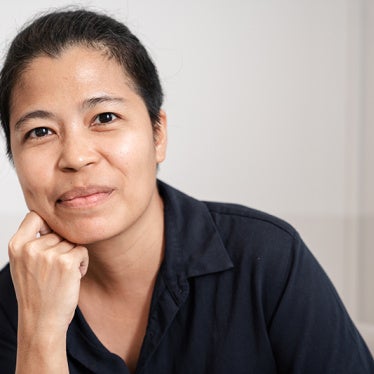(New York) Vietnam's use of espionage charges against peaceful dissidents clearly violates Vietnam's international human rights obligations and this practice should be strongly condemned by delegates at the United Nations Commission on Human Rights now meeting in Geneva, Human Rights Watch said today.
Vietnam has signed UN treaties protecting the right to free expression. Yet it's locking up citizens using the Internet to express their views," said Brad Adams, executive director for Asia at Human Rights Watch. "This is going on while Vietnam is participating in deliberations of the United Nations' highest human rights body. Delegates should publicly call on Vietnam to cease these arrests."
Human Rights Watch condemned the arrest of noted physician Dr. Nguyen Dan Que on March 17, 2003 outside his home in Ho Chi Minh City. According to the Vietnamese foreign ministry, Dr. Que will be prosecuted under Article 80 of the Vietnamese Criminal Code for sending information critical of the Vietnamese government via the Internet. Article 80 covers crimes of espionage and carries a sentence ranging from twelve years to the death penalty. Officials claim he was arrested at an Internet café, though his family disputes this claim. Police searched his house and confiscated his laptop computer and written essays.
Dr. Que, a well-known democracy and human rights advocate, was released as part of a prisoner amnesty in 1998 while serving a 20-year prison sentence. Even upon his release, he has remained under heavy surveillance and has been prohibited from resuming his medical practice as an endocrinologist. His family has had no access to him since his arrest on March 17.
Last year, Human Rights Watch honored him with Hellman/Hammett grant, an award recognizing repressed writers worldwide.
"Dr. Que should be immediately and unconditionally released," said Adams. "Under international law, he has committed no crime."
Other dissidents in Vietnam have been detained in recent months and given harsh sentences, many of them for using the Internet to express their views. Last December, Nguyen Khac Toan was sent to prison for twelve years on charges of espionage. An appeal of his sentence is set to be heard on April 2.
Pham Que Duong was arrested on December 28, 2002 and indicted under Article 80, but has not yet been put on trial. He is 71 years old and a former colonel in the People's Liberation Army who quit the Communist Party and became a democracy activist; his family is not allowed to provide him urgently needed food and medicine in prison.
Last October, Li Chi Quang was arrested in an Internet café in Hanoi while sending an email message to a democracy advocate abroad. He received a four-year sentence on charges of disseminating propaganda against the state.
Pham Hong Son was arrested in March 2002 and charged with espionage under Article 80. His crime was to have translated an article on democracy from the U.S. Embassy website, which he sent to some of his friends and senior Vietnamese officials. The translation was later posted on the Internet.
Vietnam is currently one of 53 members of the UN Commission on Human Rights. It has ratified the International Covenant on Civil and Political Rights (ICCPR), which, under Article 19, protects the right to "seek, receive and impart information and ideas of all kinds, regardless of frontiers, either orally, in writing or in print, or through any other media of his choice."
Vietnam's Assistant Minister for Foreign Affairs, Dao Viet Trung, spoke at the Commission in Geneva on March 19 and specifically referred to Hanoi's commitment to the ICCPR. "Under the Constitution, laws and policies of the State of Vietnam, human rights in all their aspects are guaranteed," he declared. "Our goal has always been to ensure the better realization of the rights and welfare of the people." Human Rights Watch urged UN delegates, in their speeches and public comments, to call for an immediate end to the wave of recent arrests.








